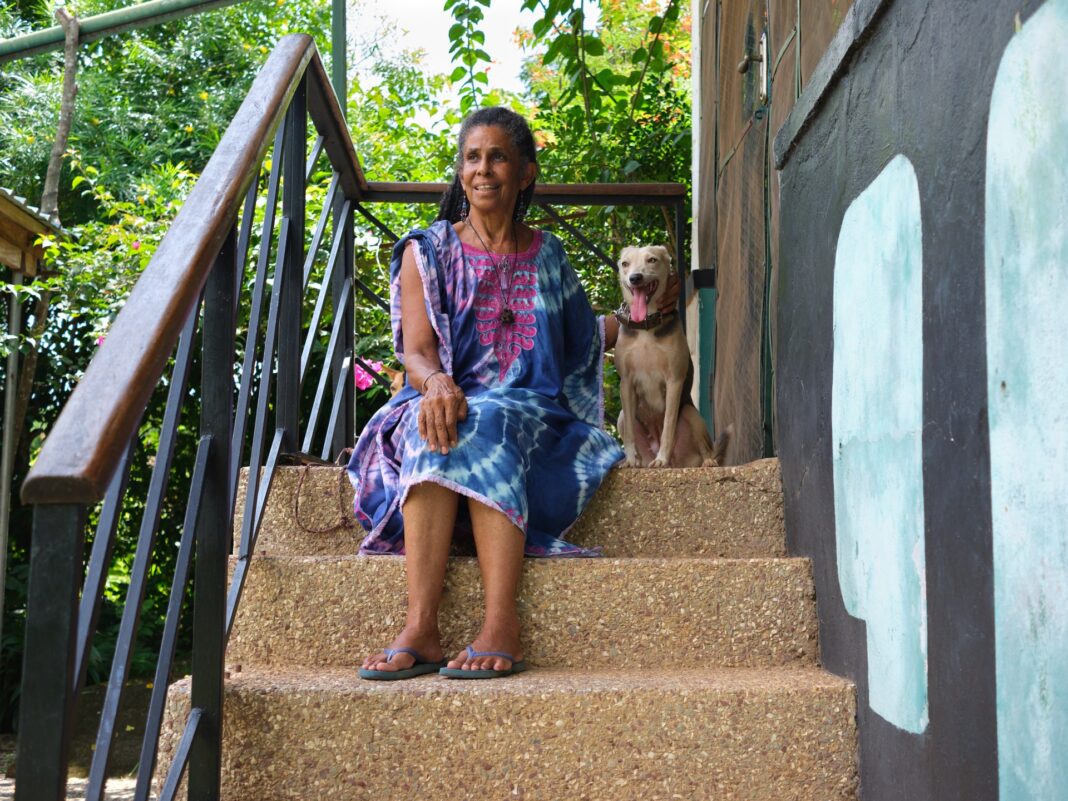Finding Home: The Journey of African Diasporans in Ghana
A Transformative Encounter
In December 2021, Ashley Haruna, a 28-year-old health coach, found herself standing in solitude before Cape Coast Castle, a historic site that bore witness to the dark chapters of slavery. As she listened to the tour guide recount the stories of enslaved individuals who were transported to distant lands, she felt an unexpected surge of emotion, revealing a connection to her ancestors who might have walked these same grounds. Growing up in Ohio to Haitian parents, Haruna had never envisioned living in Ghana. However, after this poignant encounter, she felt compelled to return to a place that resonated deeply with her roots.
Following the Legacy of Kwame Nkrumah
Haruna is part of a growing trend among African Americans seeking a connection to the motherland. Ghanaian leaders have long encouraged this return, dating back to the 1950s with the vision of Kwame Nkrumah, the country’s first president. Nkrumah invited prominent African Americans like W.E.B. Du Bois and Maya Angelou to relocate, making Ghana a beacon for the diaspora. Most notably, events like the “Year of Return” in 2019 saw many individuals gaining Ghanaian citizenship, as the government continues its “Beyond the Return” initiative to foster deeper ties. This shared history pulls many back, but the journey is often filled with unexpected challenges.
The Reality of Resettlement
Haruna’s initial excitement was met with the harsh realities of settling in a new country. Her first apartment, two hours north in the Eastern Region, was isolated, lacking essential amenities and a supportive community. Feeling overwhelmed, she searched for a solution and discovered Villa Diaspora, a co-living space designed specifically for returnees. Here, she found support not just for everyday practicalities like grocery shopping or navigating utilities, but also a community of individuals on similar journeys. Living with other African Americans, she formed bonds and learned the nuances of Ghanaian culture, making her transition smoother.
Building Bridges: Michelle Konadu’s Vision
Michelle Konadu, the founder of Villa Diaspora, is herself a returnee who understands the complexities of belonging to two worlds. Born in New York to Ghanaian parents, she realized that the transition back to Ghana could be fraught with challenges. Determined to help others avoid the pitfalls she encountered, Konadu opened her home to newcomers seeking a soft landing. At Villa Diaspora, she fosters community, helping returnees navigate both cultural and practical challenges. Her commitment has created a sanctuary for those looking for connection and understanding in a new land.
The Healing Journey
For many, returning to Ghana is more than a geographical move; it represents a quest for healing, reconnection, and renewal. Konadu recognizes that most returnees come with a “soul mission,” driven by a desire to escape the struggles of being a minority in the U.S. These motivations are often layered with personal history and the weight of ancestral ties. The shared understanding among tenants eases their integration into local life, providing a foundation to grow and transform.
Navigating Privilege and Cultural Nuances
While Haruna and others may find special privileges in Ghana due to their American ties—such as lighter skin and English accents—it also comes with a responsibility to acknowledge those disparities. The sense of ease she experiences contrasts sharply with the realities faced by many locals, who often struggle with basic necessities like clean water and stable electricity. This consciousness of privilege brings a complex layer to her identity as a returnee.
Cultural Clashes and Community Struggles
However, the influx of diasporans has led to rising tensions. Anthony Amponsah Faith, a local entrepreneur, notes the economic ripple effects affecting prices and availability of resources. As wealthier returnees settle in affluent neighborhoods, they find amenities like uninterrupted electricity and supermarkets. Meanwhile, locals experience the typical issues of daily life, encountering resource shortages and economic hardships. This disparity fosters an unintentional divide, complicating relationships and leading to frustrations on both sides.
New Settlements: Building a Future
The desire to create a space for diasporans has sparked projects like Fihankra, aimed at providing a supportive community. Designed as a Pan-African refuge, Fihankra initially welcomed returnees but has faced its share of challenges and scandals over the years. Far from the vision of harmony, it serves as a reminder that the journey toward a reconciled community continues to evolve. The emerging settlements signal hope for many but also highlight the complex negotiations over land and identity that surround them.
The Role of Real Estate
Entrepreneurs like Dawn Dickson are creating new opportunities for diasporans seeking both community and economic stability. By facilitating the purchase of land and constructing homes, she is helping African Americans establish roots. However, this has not come without scrutiny, as ownership of land often intersects with the historical narratives of displacement and injustice. Balancing progress for newcomers with the needs of existing communities remains a sensitive concern.
A Sense of Belonging
Figures like Harriet Kaufman illustrate the longevity of the returnee experience. Having moved to Ghana decades prior, she emphasizes the stark differences in today’s journey for returnees, shaped by social media glamorization of life in Africa. Though she acknowledges her own privilege, Kaufman finds meaning in her integration with local communities, having built lasting relationships over time. Her efforts to create a local hub show that true belonging transcends physical spaces and involves ongoing dedication to community engagement.
The Path Forward
The narratives of individuals like Haruna and other returnees highlight the multifaceted experiences of the African diaspora in Ghana. Their journeys, filled with hope, tension, and intricate cultural dynamics, continue to shape the evolving landscape of this rekindled relationship with the motherland. Each story encapsulates the broader quest for identity, belonging, and a profound connection to ancestral roots, reinforcing that every return is not merely a physical act but an emotional and spiritual journey.



